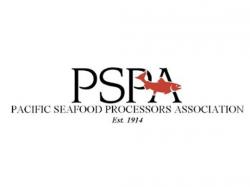PSPA Applauds New FDA Advice For Women To Eat More Fish
June 12, 2014 | 2 min to read

WASHINGTON — The Pacific Seafood Processors Association (PSPA), a leading nonprofit seafood industry trade association, is thrilled to see new advice from the Food and Drug Administration (FDA) encouraging pregnant women and small children to eat more seafood.
The FDA's new advice, based on years of rigorous science, found that limiting or avoiding fish during pregnancy and early childhood "can mean missing out on important nutrients that can have a positive impact on growth and development." The advice recommends pregnant women eat at least eight ounces of a variety of seafood, such as salmon, per week.
"This is a huge step in the right direction," said Glenn Reed, Pacific Seafood Processors Association President. "The important next step is ensuring that American women receive this message clearly and correctly."
Some language in the current draft advice seems complicated and confusing and PSPA fears nuances in the advice could scare pregnant women away from seafood, instead of encouraging them to eat more.
"PSPA looks forward to working with the FDA during the comment period to ensure the final document reflects FDA's ultimate goal: increasing the amount of seafood pregnant women eat," Reed said. "We're excited for nutrition policy to finally match up with years of science which concluded the only risk in eating seafood is not eating enough."
About Pacific Seafood Processors Association
Pacific Seafood Processors Association (PSPA) is a nonprofit seafood industry trade association. Its corporate members are major seafood processing companies with operations in Alaska and Washington. PSPA was founded in 1914 to foster a better public understanding of the importance of the seafood industry, and has been in continuous and active existence since that time.
For more than a century, PSPA member companies have played an important role in the heritage and development of their region. Today, they provide consumers with a wide variety of seafood products of the highest quality and play an ongoing, vital role in economies of the region and the nation.
Source: Pacific Seafood Processors Association (PSPA)
